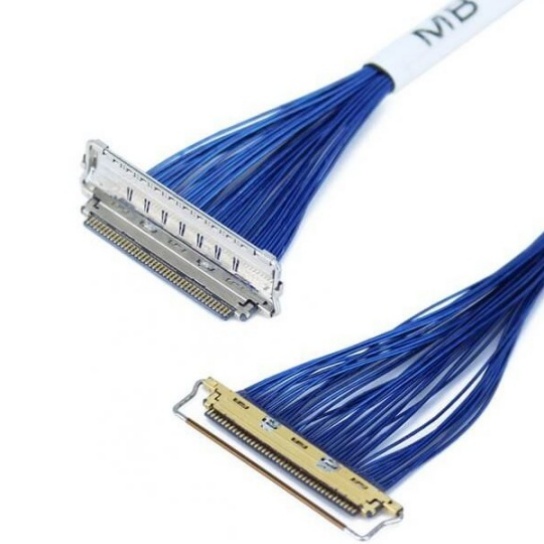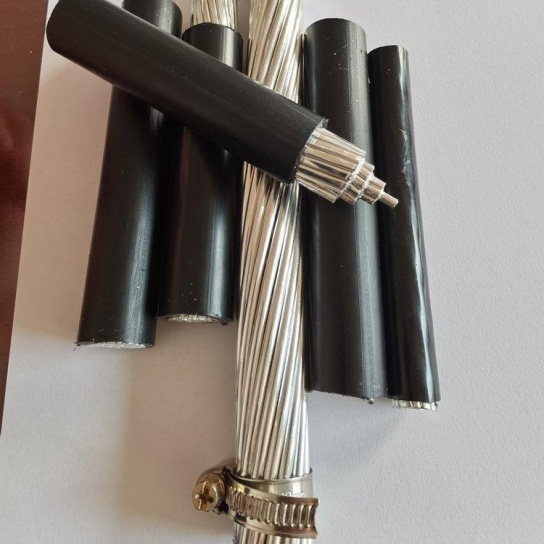Aviation Cables: From Cockpits to Cultural Icon – The Unsung Heroes of Flight
Think about flight. You picture soaring wings, roaring engines, daring pilots. But silently threading through the veins of every aircraft, critical yet often overlooked, are aviation cables. These specialized wires are far more than just bundles of metal; they are the literal nervous system of aviation, evolving from humble cockpit connectors to unexpected symbols of industry and aesthetic. Understanding their journey reveals a fascinating blend of precision engineering, relentless innovation, and surprising cultural resonance – making them truly essential aircraft components.
The Humble Origins: Wires in the Wood and Fabric Era
The story begins at the dawn of powered flight. Early aircraft like the Wright Flyer utilized relatively simple control cables – robust, flexible wires primarily made from steel, manually connecting the pilot’s yoke and rudder pedals to flight surfaces. These primary flight controls were direct and physical, demanding strength and reliability above all else. Inside the sparse cockpit, a minimal network of wires carried basic electrical signals for instruments and ignition.
The Engineering Leap: Complexity Demands Innovation
As aircraft evolved into metal giants capable of transcontinental and transoceanic travel, the demands on aviation wires exploded. The sheer complexity of modern aircraft introduced:
- Massive Electrical Loads: Hydraulic systems, extensive lighting, advanced avionics suites, environmental controls, and in-flight entertainment required significantly higher electrical current handling and intricate wire harness organization.
- Extreme Environments: Cables had to withstand punishing conditions: drastic temperature variations (-55°C to 260°C), vibration, pressure changes, exposure to fuels, hydraulic fluids, and ozone. Standard wires would quickly fail.
- Lightweighting Imperative: Every gram matters in flight. Aviation cables needed to be not just robust, but incredibly lightweight.
- Fire Safety: The catastrophic potential of an onboard fire mandated fire-resistant and flame-retardant materials that wouldn’t propagate flames or emit excessive toxic smoke (low smoke toxicity).
Material Science to the Rescue: The Rise of Advanced Wiring
This drove revolutionary advancements in aircraft wiring materials:
- Specialized Insulations: Teflon® (like PTFE and FEP), Kapton®, Tefzel® (ETFE), and cross-linked polyethylenes replaced older rubbers and PVC. These offered superior temperature resistance, chemical inertness, abrasion resistance, and low weight.
- Shielding: To prevent interference from the massive amount of electrical “noise” in modern aircraft (EMI/RFI shielding), cables often incorporate braided or foil shields.
- Connectors & Terminations: Precision aviation connectors (like Mil-Spec D-Subs and circular connectors) became crucial, ensuring secure, weatherproof, and vibration-resistant connections. Crimp terminals replaced soldering for greater reliability in demanding conditions.
- Stringent Standards: Manufacturing and installation adhere to rigorous standards like AS50881 (formerly MIL-W-5088), SAE-AS22759, and MIL-DTL-27500, guaranteeing performance, safety, and traceability. Mil-Spec wiring became the benchmark.
Beyond Function: When Wires Become Cultural Icons
The journey of aviation cables extends far beyond the airframe. Their unique aesthetic and symbolic power have propelled them into the cultural zeitgeist:
- Industrial Chic & Steampunk: The intricate bundles of wires in vintage aircraft cockpits, with their braided shields, visible connectors, and functional beauty, became inspirational. This “cockpit core” aesthetic heavily influences industrial design, interior décor (think exposed wiring in lofts or high-end bars), and particularly steampunk fashion and art, where brass connectors and leather-wrapped conduits evoke retro-futurism.
- Symbols of Technology & Complexity: Aviation cables represent the hidden, intricate technology that makes the modern world (and flight) possible. They visually signify complexity, precision engineering, and reliability, concepts admired and often emulated.
- Fashion Statements: Jewelry designers incorporate miniature aviation connectors, wire patterns, and elements inspired by cable harnesses. Belts featuring aircraft-style quick-release buckles are ubiquitous.
- Artistic Expression: Sculptors and installation artists utilize salvaged aircraft wire and components to create pieces evoking themes of connection, technology, human ingenuity, and flight itself. They represent both history and potential.
- Vintage & Restoration Appeal: In the world of vintage aircraft restoration, meticulously recreating or preserving the original wiring loom is a point of pride and authenticity, revered by enthusiasts who see cables as part of the machine’s soul.
Modern Relevance: Still Critical, Always Evolving
Despite their cultural cachet, the primary role of aviation cables remains paramount in the cockpit and throughout the fuselage:
- Fly-By-Wire (FBW): Even as mechanical cables give way to electronic signals in modern FBW systems, sophisticated data buses (like AFDX, ARINC 429) and fiber optic cables carry immense amounts of critical information. The demands on signal integrity, EMI shielding, and speed are higher than ever.
- Unmanned Systems: Drones rely on robust, lightweight wiring for control, communication, and sensor data, pushing innovation in miniaturization.
- More Electric Aircraft (MEA): The shift from hydraulic/pneumatic systems to electrical power for functions like braking and actuation increases the density and criticality of power cables onboard.
- Enhanced Maintenance & Diagnostics: Aviation-grade wire and connectors remain essential, and techniques for inspecting and maintaining wiring harnesses are continually refined to ensure aircraft safety.
Conclusion: The Enduring Legacy of Aviation Wire
Aviation cables are the unsung heroes of flight, an evolution from simple pull-wires to complex, life-critical networks engineered to the highest standards. Their journey mirrors the journey of aviation itself – pushing boundaries, demanding precision, and enabling the extraordinary. And in a testament to human fascination with technology, they transcended their utilitarian origins. From the exposed pipes and wires of trendy cafes to the intricate brasswork of a steampunk costume, aviation cables have become cultural icons, symbolizing connection, complexity, and the enduring allure of the skies. Whether you’re an aerospace engineer selecting Mil-Spec wiring for the next generation airliner, a designer drawing inspiration from a cockpit harness, or a history buff appreciating the authentic wiring in a restored Spitfire, aviation cables silently command respect as both vital technology and enduring cultural symbols. They truly are the lifelines connecting our dreams of flight to reality.






